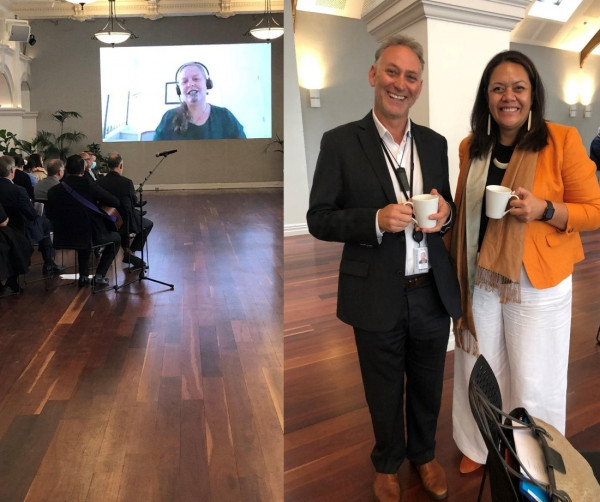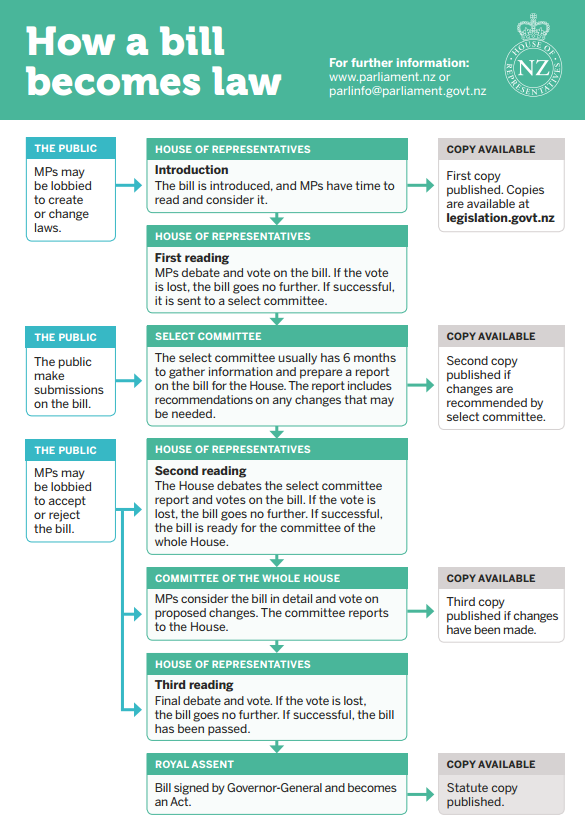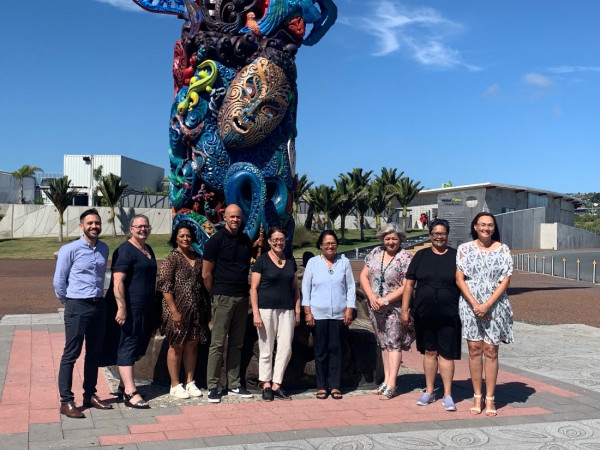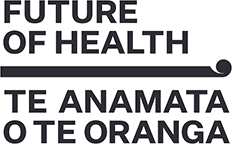Update from the Transition Unit - 9 March 2022
View and print this newsletter from our online archive: Update from the Transition Unit - 9 March 2022(external link)
On track to transition on 1 July
Kia ora.
We are well into 2022 and the work to establish Aotearoa New Zealand’s new health system remains on track to transition on July 1.
Over the past few weeks the Pae Ora Legislation Select Committee heard from hundreds of submitters and received more than 4,600 submissions sharing their thoughts about the Pae Ora (Healthy Futures) Bill, and what they want our new health system to look like.
Thank you to everyone who took the time to provide input into the Bill. Every submission counts when it comes to making sure we can deliver better healthcare for all New Zealanders, no matter who they are or where they live.
Parliament expects the Committee’s report on its findings and recommendations at the end of April.
When it comes to Health New Zealand (HNZ) and the Māori Health Authority (MHA), we’ve made great progress through thorough planning and preparatory work to support the establishment of HNZ and the MHA as permanent entities come July 1 – this work was essential to ensure minimal disruption to our frontline workforce.
COVID-19 continues to put pressure on a workforce that was already under strain. It is critically important that we strengthen our healthcare workforce, including addressing reported nursing and staffing vacancies, to ensure the safety of patients.
The health reform will make nationwide workforce planning much easier and ensure greater accountably. The sooner we get started the better.
I look forward to keeping you updated over the coming months in the lead up to the Pae Ora (Healthy Futures) Bill coming into effect on 1 July.
Andrew Little
Minister of Health
New Chief Executives welcomed

A significant milestone in the health reform mahi has been marked with new chief executives taking the reins at the interim Māori Health Authority and interim Health New Zealand.
Hon Peeni Henare and Hon Aupito William Sio joined leaders and staff from the Transition Unit, Ministry of Health and the new health agencies in welcoming Riana Manuel, CE interim Māori Health Authority, and Fepulea’i Margie Apa, CE interim Health New Zealand, to their new roles.
Speakers at the official welcome included Minister Sio, Justice Joe Williams, Fa’amatuainu Tino Pereira, Muru Maipi along with interim Māori Health Authority Board Co-chairs Sharon Shea and Tipa Mahuta, and interim Health New Zealand Chair Rob Campbell.
The speakers expressed confidence in the ability of the new leaders to steer the waka of Health New Zealand and the Māori Health Authority with both agility and a commitment to partnership.
Minister Sio offered his blessing to the new chief executives on behalf of all those working to improve inequities for Māori and Pacific peoples. Along with Justice Joe Williams and interim Health New Zealand Chair Rob Campbell, Minister Sio also emphasised that the whole health system is behind their leaders.
Co-Chair of the interim Māori Health Authority Sharon Shea spoke of their extensive search for the type of visionary leadership needed to take on the challenges the new organisations face, and the strengths that Ms Manuel and Fepulea’i Margie Apa bring to their respective roles.
Both chief executives expressed their commitment to meeting the challenges ahead and realising the aspirations of their tīpuna in delivering equity for all in the new health system.
“I’m really proud to be in the public sector in health and it is an inspiration every day to see what my colleagues do to improve the health of their patients and their families and communities,” Fepulea’i Margie Apa said.
“I’m a big believer in service, I love my village, I love my marae and I love being able to make sure people all around me get to do the best jobs they can do every day. I’m really looking forward to the challenge and the journey, with my Te Tiriti partners in Health New Zealand,” Riana Manuel said.
Select Committee to report back to the House
Over the last few weeks the Pae Ora Legislation Committee has been meeting to consider submissions received on the Pae Oea (Healthy Futures) Bill. Its next step is to report back to the House on any recommended changes, based on information in submissions and what the committee has heard from submitters.
A total of 4,663 submissions were received and nearly 200 people spoke to their submissions.
Following submissions, further advice, in the form of a report, was provided to the Committee from Transition Unit staff within the Department of the Prime Minister and Cabinet. The report is intended to address key issues raised and make recommended changes to the Bill, based on the feedback that’s been provided in the submissions.
The committee will now consider all the information received and decide on what changes to recommend to the Bill. The committee will report back to the House no later than 27 April.

Strong foundations being established for data and digital
Innovative ways of using data and digital capability will be a big part of the future health system to support people to access care remotely, have better experiences with the health system and empower the workforce.
But first, there needs to be a strong foundation.
Years of underinvestment has affected the health sector’s ability to use data and digital to best support people with their healthcare needs.
Budget 21 included $385 million over four years for digital infrastructure and capability, including funding for Hira – the new national information health platform.
Hira will transform the way people interact with health services, and enable patients and trusted health providers to have secure access to patient information when needed.
There’s also a focus on investing in cybersecurity including implementing the cybersecurity roadmap. In December more than $75 million was confirmed for increasing the resilience of data and digital systems in the face of increasing cybersecurity risks.
This demonstrates the commitment to building the strong foundations needed for the new health system, while also investing in innovation to enable initiatives to be rolled out at scale.
The COVID pandemic has shown how the health system has been able to adapt, think, and operate differently. The opportunity now is to build digital transformation capability in the system, including the ability to drive nationally enabled digital care models.
This shows how the new foundations being built within Aotearoa New Zealand’s future health system will be able to innovatively operate in a way that not only benefits patients but also the workforce to achieve healthy futures for all new Zealanders.
Board takes opportunity to meet kanohi ki te kanohi

The interim Māori Health Authority board took the opportunity to meet kanohi ki te kanohi in Tāmaki makaurau in late January when COVID-19 protocols allowed.
The Board whakatau – carried out by Rāhui Papa – established the kaupapa of whakawhanaungatanga and set the Board’s strategic direction and intentions for 2022 and beyond.
The hui-ā-kanohi was supported by staff of the interim Māori Health Authority including acting Chief Executive Chad Paraone and incoming Chief Executive Riana Manuel.
Shifting the system – equitable access to high-quality emergency and specialist care
The vision for the future health system is one that is people-centred, equitable, accessible, and cohesive.
To achieve that vision, the health system reform is focused on five key areas where we want to see significant change, referred to as 'system shifts'.
In this edition, we look at system shift three, ensuring everyone has equitable access to high-quality emergency and specialist care when they need it, wherever they live.
Quality hospital and specialist care, when and where it’s needed, makes a tremendous difference to New Zealanders’ health. But it requires greater coordination and consistency than what we have now.
We know that hospital and specialist services in many parts of New Zealand are under significant pressure. A major cause of this pressure is that our hospital and specialist care is not managed as a coherent network. Instead, services are managed in relative isolation from one another.
This makes it harder to ensure care is consistent across New Zealand, and results in what is known as the ‘postcode lottery’ - where the quality and type of care you receive depends on where you live.
In the future health system, everyone will have access to high-quality emergency and specialist care. We’ll achieve this by planning our hospital and specialist services nationally and managing them through wider regional networks.
Instead of decisions about care being made in isolation from other surrounding regions, hospital and specialist services should be funded where they will make the biggest difference to New Zealanders’ care.
This will look like:
- More consistency in care across New Zealand – meaning that rural and small urban communities will have better access to regularly needed care, close to home, and greater certainty where more specialist or complex care is needed
- Reduced administration and complexity caused by the fragmentation of services across the country, reducing staff workloads and resulting in better patient experiences
- Less competition between districts for staff and resources, so funding and staffing is directed where it’s most needed.
